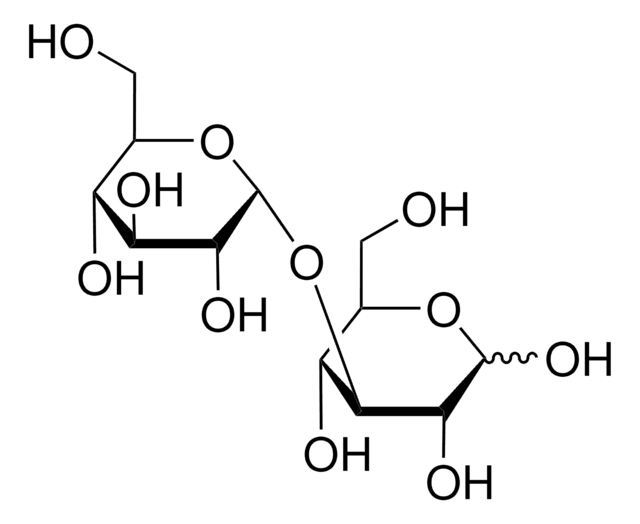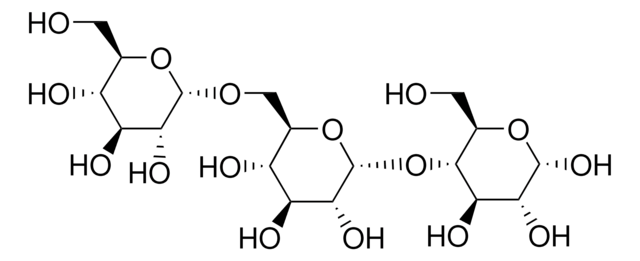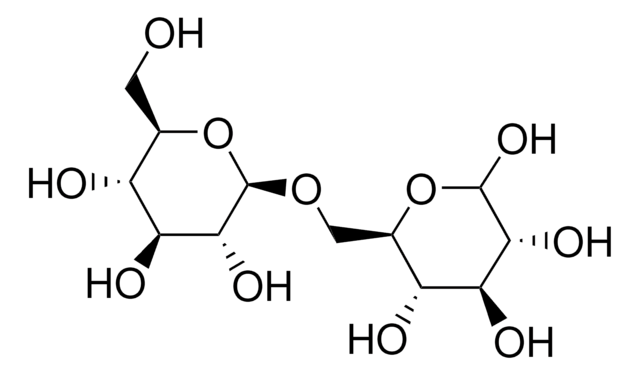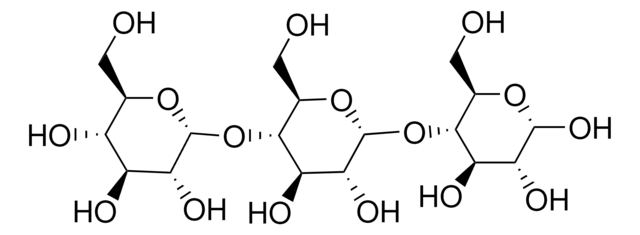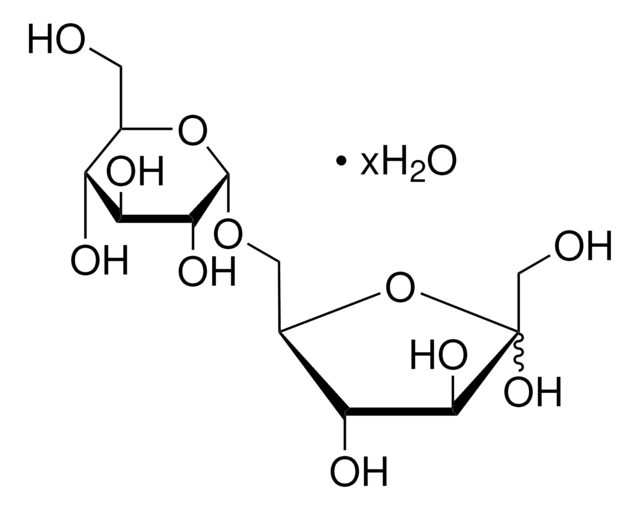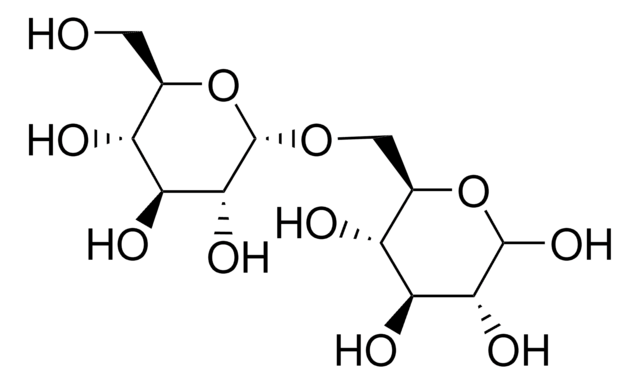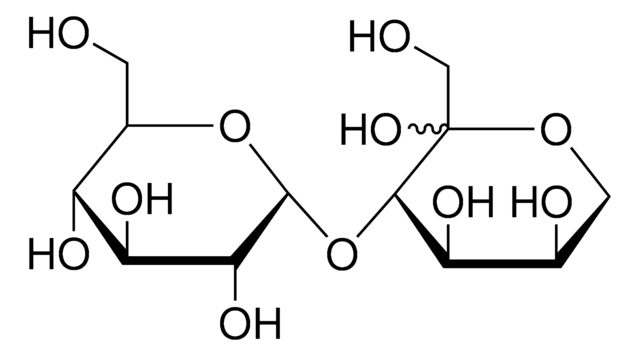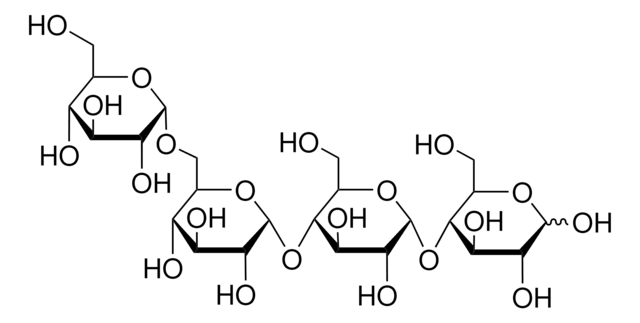K4769
Kojibiose
≥98% (HPLC)
Synonym(s):
α-D-Glc-(1→2)-D-Glc, 2-O-α-D-Glucopyranosyl-D-glucose
About This Item
Recommended Products
Quality Level
assay
≥98% (HPLC)
form
powder
technique(s)
HPLC: suitable
color
white to off-white
solubility
water: 5 mg/mL, clear, colorless
storage temp.
−20°C
SMILES string
OCC(O)C(O)C(O)C(OC1OC(CO)C(O)C(O)C1O)C=O
InChI
1S/C12H22O11/c13-1-4(16)7(17)8(18)5(2-14)22-12-11(21)10(20)9(19)6(3-15)23-12/h2,4-13,15-21H,1,3H2
InChI key
PZDOWFGHCNHPQD-UHFFFAOYSA-N
Looking for similar products? Visit Product Comparison Guide
Application
Biochem/physiol Actions
Other Notes
Storage Class
11 - Combustible Solids
wgk_germany
WGK 3
flash_point_f
Not applicable
flash_point_c
Not applicable
Choose from one of the most recent versions:
Already Own This Product?
Find documentation for the products that you have recently purchased in the Document Library.
Customers Also Viewed
Our team of scientists has experience in all areas of research including Life Science, Material Science, Chemical Synthesis, Chromatography, Analytical and many others.
Contact Technical Service